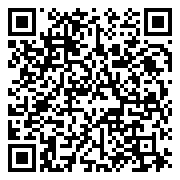
Diversity & Intersectionality: Theoretical Perspectives and Analytical Concepts with Robel Afeworki Abay
This seminar examines the hypothesis that a perspective based on intersectionality theory offers a particularly suitable basis for a fruitful discussion on how to deal with difference, inequality, and diversity in a society of dominance.
A critical-reflexive and domination-critical thematization of discursively produced and institutionalized relations of difference and inequality, such as racism, ableism, (hetero)sexism and homonationalism, is of great relevance to self-positioning as well as to intersectionality and diversity research, especially against the backdrop of the current political shifts in discourse. This is because the altered sociopolitical conditions also have fatal influences on the practical work with those affected as well as on scientific research into social relations of inequality.
The discussions on selected literature will be based on the theoretical approaches of diversity and intersectionality, which grant access critical to domination and dominance to contexts and modalities for the production, updating, and reproduction of patriarchal heteronormative structures and social relations of inequality:
1. Intersectionality:
We’ll look at the multiple intersectional identities, affiliations, and realities of life as well as symbolic and political representations of marginalized groups.
Based on this theoretical exploration of perspectives on society and institutions such as social work, school, or advisory services, we’ll then consider what challenges the prevailing heteronormative structures present for marginalized groups in particular, such as black, indigenous and people of color (BIPoC), disabled and queer communities, which are construed as “the others” through powerful attributions and excluded from or left out of equal participation in society.
2. Diversity:
We’ll critically examine the lack of recognition and appreciation of social diversity and the associated impeded political, social, and economic participation and realization opportunities of marginalized communities in a capitalistically organized society of dominance.</li>
</ol>
Seminar participants will thus be familiarized with fundamental aspects of intersectional inequality and diversity research and moreover learn how to meaningfully link theoretical considerations with practice.
Course times: Online; 2–6 pm on occasional Thursdays: 07.04.; 21.04.; 12.05.; 19.05.; 09.06.; 23.06. & 07.07.

